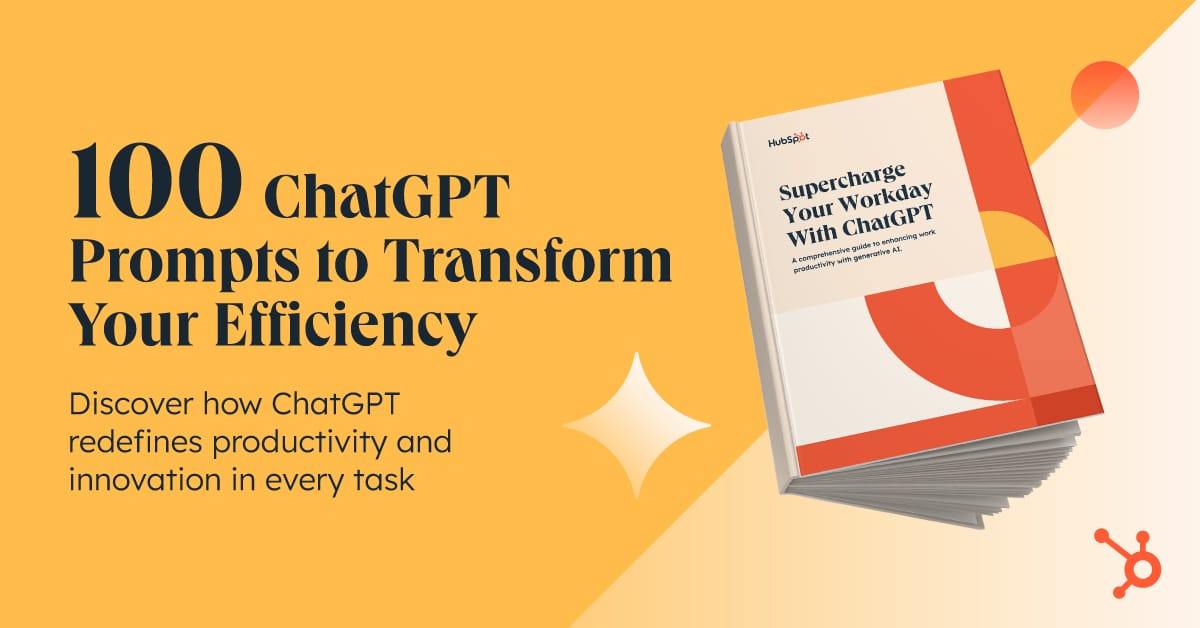- Artificial Antics
- Posts
- AI Bytes Newsletter Issue #52
AI Bytes Newsletter Issue #52
IRS Deploys AI to Detect Tax Fraud | Meta Uses Generative AI to Improve User Intent Predictions | Samsung's AI-Powered Smart Fridges | U.S. Sanctions Russian Group Over AI-Driven Election Interference | Building a Knowledge System That Enhances Rather Than Replaces Thought

Welcome to this week’s newsletter! From groundbreaking advancements in AI-driven personalization to ethical debates about the role of artificial intelligence in public service, we’ve curated the latest and most compelling stories shaping the world of technology. You’ll also find insights into practical AI tools transforming everyday life, a thought-provoking exploration of AI’s impact on global events, and an exciting look at the trends and innovations redefining robotics and programming. As always, we’re here to bring you the stories and insights that matter most in the fast-changing world of AI.
The Latest in AI
A Look into the Heart of AI
Featured Innovation
Meta Uses Generative AI to Improve User Intent Predictions
Meta has taken a bold step forward in enhancing user engagement with its latest advancements in generative AI. By leveraging cutting-edge technology, the company has developed models capable of better predicting user intent. This shift allows Meta to fine-tune its recommendations, delivering personalized experiences that align more closely with individual preferences. The new system bridges the gap between machine learning and human behavior, setting a new standard for AI-driven personalization.
These generative AI models analyze vast amounts of user data, but Meta is focused on doing so with efficiency and precision. By improving how intent is predicted, users encounter content that feels more relevant to their needs without being inundated with unnecessary information. This streamlined approach is expected to redefine advertising strategies, making campaigns not just smarter but also more empathetic to user preferences.
Beyond the technical achievements, this innovation marks a significant shift in how companies think about AI’s role in customer engagement. Meta’s focus on refining intent prediction speaks to a broader trend of using AI to create more meaningful interactions between users and platforms. As this technology evolves, the implications for industries reliant on consumer data are monumental, from e-commerce to entertainment. Meta is paving the way for a future where AI seamlessly integrates into our daily lives, creating experiences that feel personal and intuitive.
Ethical Considerations & Real-World Impact
IRS Deploys AI to Detect Tax Fraud
The IRS has turned to artificial intelligence to tackle one of the most persistent challenges in taxation—fraud detection. With the rapid growth of cryptocurrencies and other emerging technologies, traditional methods of identifying fraudulent activity have struggled to keep pace. The IRS is deploying AI tools that can analyze complex data sets, flagging suspicious patterns and behaviors more effectively than ever before. This new approach not only boosts efficiency but also enhances the agency's ability to recover lost revenue.
One of the standout applications of these AI tools is their use in cryptocurrency transactions, where anonymity often complicates fraud investigations. The system leverages machine learning to sift through intricate blockchain data, identifying discrepancies that human auditors might miss. This capability marks a major leap in the IRS’s fight against tax evasion, providing the agency with a much-needed edge in the ever-evolving digital economy.
However, the integration of AI in public service raises critical ethical questions. While the tools offer unparalleled efficiency, they also highlight the potential for overreach, particularly in areas like privacy and data security. As the IRS continues to refine these technologies, the balance between safeguarding individual rights and enforcing compliance will remain a key consideration. This initiative demonstrates the growing role of AI in government and its real-world impact on creating a fairer, more accountable system.
Want to get the most out of ChatGPT?
ChatGPT is a superpower if you know how to use it correctly.
Discover how HubSpot's guide to AI can elevate both your productivity and creativity to get more things done.
Learn to automate tasks, enhance decision-making, and foster innovation with the power of AI.
AI Tool of the Week
Samsung's AI-Powered Smart Fridges
Samsung has introduced a revolutionary way to elevate home cooking with its AI-powered smart fridges. These innovative appliances are equipped with artificial intelligence capable of analyzing the ingredients stored within and suggesting recipes based on what’s available. Whether you’re dealing with a nearly empty fridge or looking for creative ways to use leftovers, Samsung’s AI takes the guesswork out of meal planning and helps reduce food waste.
The fridge’s capabilities go beyond simple inventory tracking. By integrating with Samsung’s ecosystem, it can provide personalized recommendations tailored to dietary preferences and restrictions. For example, users can receive suggestions for vegetarian dishes, allergen-free meals, or even calorie-conscious options, making it a valuable tool for health-conscious households. This seamless combination of convenience and functionality has set a new standard for AI in everyday life.
Samsung’s smart fridge is a prime example of how AI can transform ordinary tasks into extraordinary experiences. It underscores the growing trend of embedding intelligence into consumer electronics, offering not just a product, but a smarter way of living. This technology is a glimpse into the future of connected homes, where AI-driven systems work to make daily routines more efficient and enjoyable.
Rico's Roundup
Critical Insights and Curated Content from Rico
Skeptics Corner
U.S. Sanctions Russian Group Over AI-Driven Election Interference
Alright, folks, the dark side of AI just got a spotlight, and not in a good way. The U.S. has sanctioned a Russian group for allegedly weaponizing AI to meddle in elections. Reports claim this group utilized AI tools to create fake news and propaganda so convincing it blurred the lines between truth and fiction. The content was then spread across social media platforms, aiming to manipulate public opinion on a massive scale. This feels like the information age just got a dangerous upgrade, and the clock is ticking to keep up. But here’s the twist: new research suggests that deepfakes and AI-generated disinformation may not be as impactful as initially feared. A study revealed that many AI-created deepfakes used in the 2024 elections were of such low quality that they failed to fool most viewers. In fact, platforms and the public alike became better at spotting AI-generated content, limiting its potential damage. This counterpoint challenges the narrative of AI being an unstoppable force in disinformation campaigns, offering a glimmer of hope amid rising fears.
Why This Should Make You Pause
AI-driven misinformation is a nightmare scenario we’ve all worried about. It’s fast, scalable, and—when done well—hard to detect. But the research brings a fresh perspective: maybe we’re more prepared than we think. Public awareness of deepfakes and advancements in detection tools may be our greatest defenses against this looming threat. That said, we can’t get complacent. While some disinformation may miss the mark, the fact that these tools are becoming more accessible means bad actors are constantly improving. This isn’t a “wait and see” game; it’s a call to action to stay ahead of the curve.
The Ethics at Play
Here’s where it gets tricky: who shoulders the blame when AI goes rogue? Is it the developers creating these tools, the actors misusing them, or the platforms allowing them to spread? The sanctions send a strong message to bad actors, but deeper questions remain about accountability. As AI evolves, so must our ethical frameworks to ensure it’s used responsibly and not weaponized against society.
The Takeaway
This debate isn’t black and white. On one hand, the sanctions underscore the serious risks of AI in the wrong hands. On the other, the research reminds us that technological and societal safeguards can work. The truth likely lies somewhere in the middle: AI isn’t an unstoppable force, but it’s not harmless either. So, how do we walk this tightrope? How do we balance innovation with responsibility?
We’d love to hear your thoughts—drop us a line and let’s figure this out together in this ever-evolving AI landscape we are all struggling to keep up with.
Must-Read Articles
Mike's Musings
AI Insights
Building a Knowledge System That Enhances Rather Than Replaces Thought
In today’s era of abundant information and rapid advancements in artificial intelligence (AI), knowledge systems have evolved to serve a new purpose. Rather than replacing human thought, the true value of these systems lies in their ability to complement and enhance it, creating a synergy between AI capabilities and human cognition.
The Synergy of AI and Human Cognition
Human cognition excels in creativity, critical thinking, and emotional intelligence, while AI specializes in data analysis, pattern recognition, and automation. By integrating these strengths, knowledge systems can drive better decision-making, spark innovation, and streamline complex workflows.
Key Principles for an Effective Knowledge System
Prioritize Understanding Over Memorization
A knowledge system should foster comprehension, helping users connect ideas, explore relationships, and build mental models.
Cultivate Critical Thinking
While AI can provide data and insights, users must evaluate its outputs critically. Tools and prompts should encourage questioning, analysis, and bias identification.
Foster Creativity
AI-generated content can support human creativity by sparking ideas and facilitating experimentation, but the focus should remain on enabling original thought.
Embrace Collaboration
Effective systems promote sharing, discussion, and collective learning, recognizing that knowledge thrives in a collaborative environment.
Personalize the Experience
Adaptability is crucial. Knowledge systems must cater to individual learning styles and preferences, enabling users to tailor their experiences and focus on what resonates most.
The Role of AI in Enhancing Knowledge
AI can significantly augment human capabilities by automating routine tasks and surfacing relevant information. Intelligent search algorithms and recommendation engines connect ideas, while tools for data visualization and analysis highlight patterns and trends that might otherwise go unnoticed. These capabilities free up cognitive resources for more complex, creative, and strategic work.
Ethical Considerations
Transparency, fairness, and privacy are critical in AI-powered knowledge systems. Developers must address biases in data and algorithms, ensuring that these systems empower users without compromising trust. Ethical design principles should prioritize user autonomy and promote human flourishing.
The Future of Knowledge Systems
The journey to build systems that enhance human thought is ongoing. As AI technology advances, new opportunities will emerge to refine these tools further. By embedding principles of understanding, critical thinking, creativity, collaboration, and personalization, organizations can create knowledge systems that drive intellectual growth, unlock innovation, and fully realize the potential of human-AI collaboration.
Mike’s Favorites
Welcome back to Mike’s Favorites, where I share some of the coolest, most innovative, and sometimes downright surprising things I’ve come across in the world of AI and robotics. This week, it’s all about breakthroughs, quirky finds, and tools that are shaping the future. Let’s take a look!
Favorite Robot: Agility Robotics’ Digit
Digit is back and better than ever! This bipedal robot doesn’t just walk—it’s designed to work in warehouses, unloading boxes and performing repetitive tasks with human-like dexterity. The most impressive part? It learns on the job, optimizing its workflow over time. Think of it as the coworker who never gets tired (or steals your lunch).
Favorite AI Tool: ChatGPT Vision
OpenAI’s ChatGPT Vision has been blowing my mind this week. Imagine pointing your phone at a piece of equipment, snapping a picture, and having an AI guide you step-by-step on how to fix it. It’s like having a tech-savvy friend in your pocket. I’ve been experimenting with it for DIY projects—it’s an actual game-changer!
Favorite Use Case: Robots in Agriculture
Farmers are leveraging robots like FarmWise to do the weeding, and I mean precise weeding—no herbicides needed! It’s eco-friendly, efficient, and reduces costs. Plus, it’s fascinating to see robots get their hands (metaphorically) dirty in fields instead of labs or factories.
Favorite Article: “The 5 Biggest Robotics Trends of 2024”
This article by The Robot Report perfectly sums up where robotics is heading. From cobots to healthcare bots, it’s inspiring to see how innovation is becoming more human-centric. If you haven’t read it, check it out here.
Favorite Quirky Find: AI-Powered Bartending Robot
This one made me chuckle. At CES 2024, they showcased an AI-powered robot bartender named BotTender. It can whip up cocktails based on your mood. Feeling adventurous? It might surprise you with something spicy. While I’m not sure how it’ll handle Rico’s AI skepticism, I bet it could whip up a mean protein shake—assuming it’s got the macros right!
What’s been catching your eye in AI and robotics lately? Let me know—I’m always on the lookout for more favorites to share! [email protected].
Latest Podcast Episode of Artificial Antics
Connect & Share
Stay Updated
Subscribe on YouTube for more AI Bytes.
Follow on LinkedIn for insights.
Catch every podcast episode on streaming platforms.
Utilize the same tools the guys use on the podcast with ElevenLabs & HeyGen
Have a friend, co-worker, or AI enthusiast you think would benefit from reading our newsletter? Refer a friend through our new referral link below!
Thank You!
Thanks to our listeners and followers! Continue to explore AI with us. More at Artificial Antics (antics.tv).
Quote of the week: "The question of whether a computer can think is no more interesting than the question of whether a submarine can swim." – Edsger W. Dijkstra




/cdn.vox-cdn.com/uploads/chorus_asset/file/24681832/Samsung_Bespoke_Family_Hub__1__1_.jpeg)

/cdn.vox-cdn.com/uploads/chorus_asset/file/25334823/STK466_ELECTION_2024_CVirginia_D.jpg)


/cdn.vox-cdn.com/uploads/chorus_asset/file/25344936/STK467_AI_Music.jpg)
